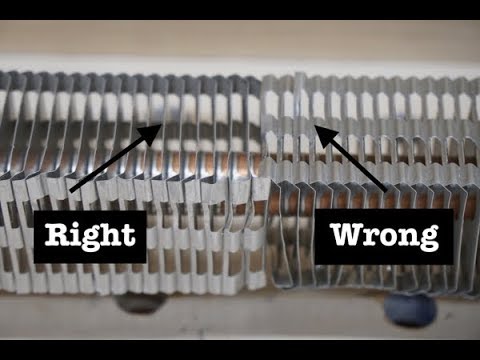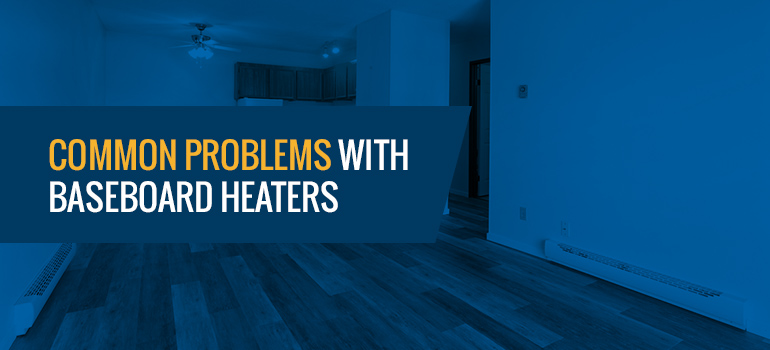Hot water baseboard heater not working? Common issues can include faulty heating elements or thermostat, while dust build-up can reduce efficiency and pose fire hazards.
Regular maintenance can prevent such problems, offering optimal heater performance and safety. Troubleshoot baseboard heater Problems to ensure your system is functioning effectively and efficiently. Regular checks and maintenance are vital in keeping your heater running smoothly. Temperature inconsistencies may indicate underlying issues that are easily rectified with timely maintenance checks, ensuring efficient heating all year round.
Keep your baseboard heater in top condition with routine checks and maintenance, maintaining its performance and safety standards. Regular maintenance keeps your baseboard heater functioning efficiently, improving performance and ensuring safety at all times.


Credit: www.angi.com
Causes Of Non-functioning Baseboard Heaters
Baseboard heaters may not function due to issues with the heating element or thermostat. Accumulated debris and dust can reduce efficiency and pose a fire hazard. Regular maintenance is essential to prevent common problems and ensure optimal heater performance. Issues can also stem from trapped air, malfunctioning boiler or central heating pump, or stuck thermostatic radiator valves.
Faulty Heating Element Or Thermostat
A common issue with baseboard heaters is a faulty heating element or thermostat. Dust and debris can accumulate, leading to reduced efficiency. Regular maintenance is essential to avoid problems.
Air Trapped In The System
Trapped air in the heating system can prevent baseboard heaters from functioning properly. Bleeding the air out of the system can help restore proper heating. Ensure there are no blockages causing air trapping.

Credit: www.pinterest.com
Common Issues And Solutions
Experience the frustration of a cold home with a hot water baseboard heater not working? Often, a malfunctioning heating element or thermostat is the culprit. Regular maintenance can prevent issues like dust buildup or blockages for efficient operation.
Circuit Breaker Check
Verify the circuit breaker is on to ensure power is reaching the baseboard heater. If the breaker is tripped, reset it and test the heater.
Thermostat Inspection
Check the thermostat settings to confirm it is set to the desired temperature. Replace old batteries and calibrate if necessary for accurate heating control.
Heater Maintenance
Regularly clean the baseboard heater from dust and debris to prevent fire hazards and maintain efficiency. Ensure proper ventilation around the heater.
Baseboard heater issues can arise from faulty heating elements or thermostats. Dust buildup can pose fire risks and reduce efficiency. Routine maintenance is key to preventing such problems.
Radiators may fail to heat due to air pockets needing bleeding, boiler or pump malfunctions, stuck valves, or sludge buildup causing blockages in the system.
If your boiler produces hot water but no heating, check that it isn’t set to ‘hot water only’. Resetting the boiler to include heating may resolve the issue.
When your hot water baseboard heater fails to provide warmth, it’s essential to examine potential boiler-related issues. Troubleshooting these problems ensures efficient functionality and optimum comfort in your living spaces.
Malfuntioning Boiler
If your boiler malfunctions, it can lead to inadequate heating in your home or property. This can occur due to several reasons, such as a faulty heating element, a dysfunctional thermostat, or an issue with the central heating pump. Regular maintenance is crucial to prevent these common problems and ensure the smooth operation of your boiler.
Sludge Or Rust Build-up
Another common issue related to boiler malfunctions is the presence of sludge or rust in the central heating system. This build-up can lead to blockages, impeding the proper flow of hot water to the baseboard heater. Regular maintenance and system flushing can help prevent sludge and rust build-up, ensuring the efficient operation of your heating system.
In addition to these troubleshooting tips, it’s important to seek professional assistance if you encounter persistent issues with your hot water baseboard heater. Addressing boiler-related problems promptly can help maintain a comfortable and cozy environment in your living spaces.
Preventive Measures For Efficient Heating
Regular maintenance and safety precautions are essential to ensure that your hot water baseboard heater functions efficiently. Taking preventive measures can not only help prevent common issues but also extend the lifespan of your heater and ensure optimal heating performance. In this section, we will discuss the importance of regular maintenance and safety precautions that you should take.
Regular Maintenance
Maintaining your hot water baseboard heater regularly plays a crucial role in its efficiency. Here are some maintenance tips to follow:
- Clean the heater and its surroundings regularly to prevent the accumulation of dust and debris that can hinder the heater’s performance.
- Inspect the heating element and thermostat for any signs of wear or damage. Replace them if necessary.
- Bleed the radiator to release any trapped air that can affect heating efficiency.
- Check for blockages in the central heating system that can impede the flow of hot water to the radiator.
- Ensure that the boiler and central heating pump are functioning correctly.
Safety Precautions
While maintaining your hot water baseboard heater, it is crucial to prioritize safety. Here are some safety precautions to keep in mind:
- Always switch off the power supply before conducting any maintenance or repairs.
- Ensure that the heater is positioned at a safe distance from flammable materials.
- Avoid blocking the heater with furniture or other objects that can obstruct airflow.
- Regularly check for any signs of overheating, such as discoloration or strange smells. If detected, immediately turn off the heater and seek professional help.
- Keep the area around the heater clear to prevent any hazards.
By following these regular maintenance and safety precautions, you can ensure that your hot water baseboard heater remains in optimal condition, providing efficient heating throughout your living space. Taking these preventive measures can save you from costly repairs and ensure a comfortable environment for you and your family.
Professional Assistance And Replacement
Experiencing a non-functional hot water baseboard heater? Seek professional assistance for prompt diagnosis and replacement of faulty parts to restore efficient heating. Prevent hazards and maximize performance through routine maintenance for trouble-free operation.
Seeking Local Technicians
If you’ve tried troubleshooting your hot water baseboard heater and it’s still not working, it may be time to seek professional assistance. Local HVAC technicians are trained and experienced in diagnosing and repairing heating systems, ensuring that your heater is up and running efficiently.
When looking for local technicians, consider reputable companies such as Strand Brothers Service Experts HVAC and Fox Service Company – HVAC, both serving the Austin area. These companies are open 24/7, providing reliable and timely service to address your heating issues.
Consideration For Heater Replacement
In some cases, repairing your hot water baseboard heater may not be the most cost-effective solution. If your heater is old, constantly experiencing issues, or not providing adequate warmth, it may be time to consider replacing it.
When considering heater replacement, there are a few factors to keep in mind. Firstly, assess the age and condition of your current heater. If it is nearing the end of its lifespan or experiencing frequent breakdowns, a replacement would be a wise investment.
Additionally, evaluate the energy efficiency of your current heater. Older models may not be as energy-efficient as newer ones, leading to higher utility bills. Upgrading to a newer, more energy-efficient model can help you save on heating costs in the long run.
Lastly, consult with a trusted HVAC technician to determine the right size and type of heater for your home. They can provide expert advice on selecting a heater that will effectively heat your space and meet your specific heating needs.

Credit: sumzim.com
Frequently Asked Questions On Hot Water Baseboard Heater Not Working
What Would Cause A Baseboard Heater Not To Work?
Baseboard heaters may not work due to issues with the heating element, thermostat malfunction, or obstructions. Dust and debris buildup can also reduce efficiency and pose a fire hazard. Regular maintenance is crucial to prevent these common problems. If issues persist, seek professional assistance.
Why Is My Hot Water Radiator Not Heating Up?
Your hot water radiator may not be heating up due to several reasons. It could be trapped air, a malfunctioning boiler or central heating pump, low thermostatic radiator valve settings, or sludge and rust in the central heating system causing blockages.
Regular maintenance and bleeding the radiator can help prevent these issues. Additionally, check the circuit breaker, thermostat, and the heater itself for any electrical problems. Consider replacing the baseboard heater if necessary.
Why Is My Boiler Getting Hot Water But No Heating?
If your boiler is getting hot water but no heating, it could be because your boiler is set to ‘hot water only’ and needs resetting. Other possible reasons include trapped air in the radiators, a malfunctioning boiler or central heating pump, stuck thermostatic radiator valves, or blockages in the central heating system.
Regular maintenance helps prevent these issues.
What Heats The Water In Baseboard Heaters?
Baseboard heaters are heated by hot water that flows through the system’s pipes and radiates heat into the room.
Why Is My Hot Water Baseboard Heater Not Working?
Sometimes, a faulty heating element or thermostat can cause your baseboard heater to stop working. It’s important to keep the heater clean and free from dust to maintain its efficiency.
Conclusion
In troubleshooting your hot water baseboard heater, it’s important to address common issues like trapped air, faulty heating elements, or thermostat malfunctions. Regular maintenance and prompt attention to these problems will ensure your heater runs efficiently. For further assistance, consult a professional technician to ensure the safety and functionality of your heating system.